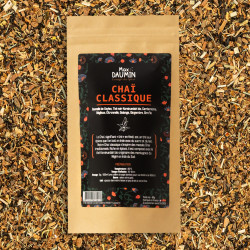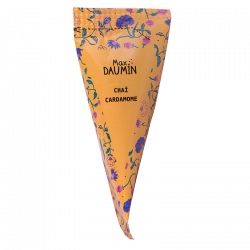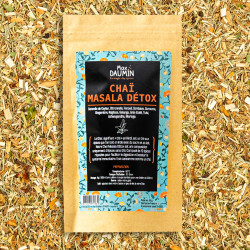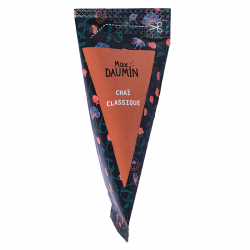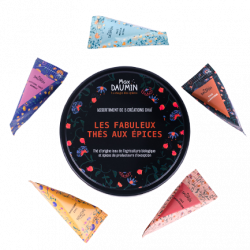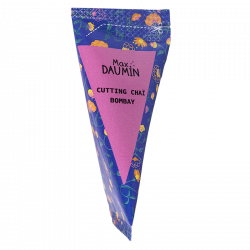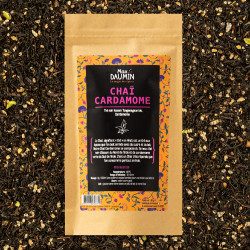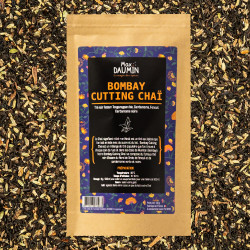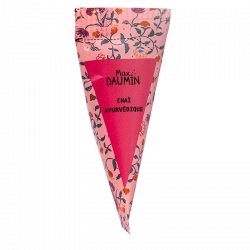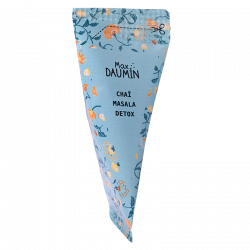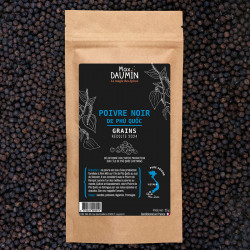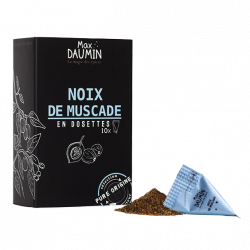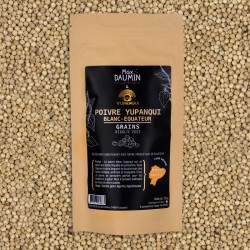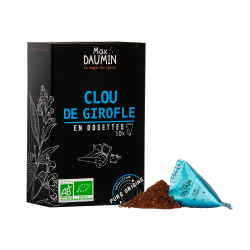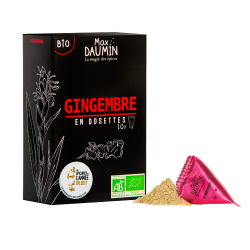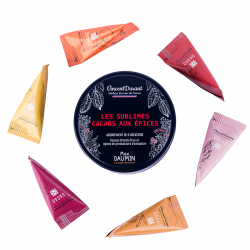Chaï Ayurvédique
Chai, meaning “tea” in Hindi, is a spiced tea that is drunk in India. Our Ayurvedic chai is inspired by Indian Ayurvedic medicine. It is a natural and traditional medicine essentially based on plants.
Our Ayurvedic chai is made with organic Korakundah tea from the Nilgiri mountains in South India with major Ayurveda spices: Tulsi, Ceylon Cinnamon, Ginger, Licorice, Pepper, Ashwagandha and Lemongrass.
Chai is traditionally drunk in India with milk and sugar, but it is perfectly suitable to be enjoyed on its own, without anything added.
-
Net weight : 80g
-
Composition : Tulsi, Ceylon Cinnamon, Ginger, Licorice, Pepper, Ashwagandha, Lemongrass
-
Conditionnement : Resealable kraft bag

History
Plant & perfume
Ayurvedic medicine originated in India around 2,000 BC. It is an unconventional traditional medicine which is distinguished by a multidisciplinary and global approach: considering a balanced and healthy diet, a major use of plants and spices, meditation and yoga.
This is how in the Indian pharmacopoeia, more than 7,000 plant species are used either in the form of herbal teas, decoctions or even medicinal wines.
Our Ayurvedic chai is made up of the following plants:
Ashwagandha, or “Indian ginseng”, helps maintain normal energy levels and fight stress. Tulsi, or “holy basil”, contributes to the maintenance of optimal physical and mental health and the normal functioning of the immune system. Ginger contributes to the tone and vitality of the body. Cinnamon contributes to digestive and cardiovascular health. Licorice is used to treat digestive disorders, menstrual symptoms and infections. Pepper is one of the most used stimulants in Ayurveda. It is a stimulant of all digestive glands, including the liver and pancreas. Finally, lemongrass which has antispasmodic, digestive tonic and calming properties, bactericidal, anti-inflammatory and hypotensive properties (decoction) and a sedative action on the nervous system: against insomnia, stress and anxiety.
Chai is the meeting of two cultures: that of tea and those of spices. It seemed obvious to us to combine Indian tea with our spices. For this we make a Nilgiris tea. The Nilgiris district is a region in the west of the state of Tamil Nadu in India. Teas from the Nilgiris have been recognized among the finest teas in the world. Along with Darjeeling and Assam teas, they are among the most famous teas in India.
Korakundah tea is one of these teas. It is a spicy and fruity tea that balances all the flavors of the spices in this chai.
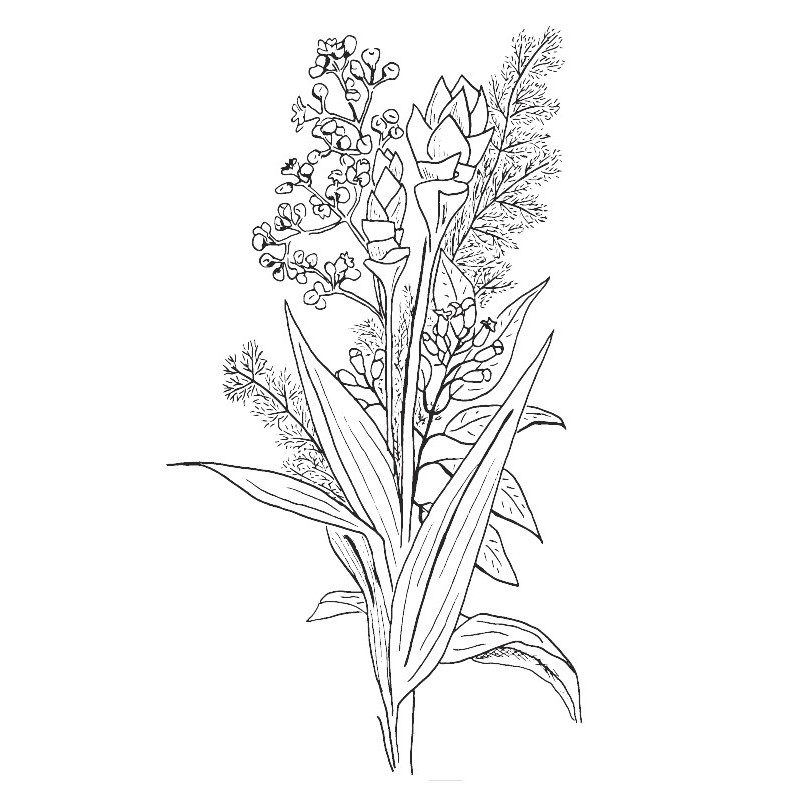

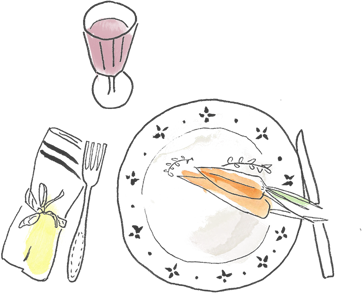
Benefits
Cooking and Virtue
With chai, the spices need a little more time to express themselves. We will start with an infusion at 80° for around 10 minutes.
Real chai is consumed with milk and sugar. When your chai tea is ready add lukewarm milk and sugar to your liking. But it can also be drunk without milk and without sugar. Our Ayurvedic chai is particularly intense in flavor. It’s an everyday drink. No flavors are added artificially, we only work with plants and spices. They express enough not to add aromas to this natural tea.

Origins
A long journey
The Korakundah tea plantation is located in the Nilgiri range of southern India. It is spread over 2,200 hilly acres and is part of the UNTE (United Nilgiri Tea Estates) founded in 1858 by Sir Robery Stanes. It was listed in the Limca Book of National Records as “the highest tea garden in the country”, with a tea plantation at an altitude of over 2400m. The area of the estate is 925 hectares, including 275 hectares of planted area, while a significant area is preserved in the form of meadows and unpolluted bodies of water. She is entirely organic and has developed her own self-sustaining input unit, housing 180 cows, helping them use cow dung as compost.


Frequently asked questions

10 other products in the same category:

Customers who bought this product also bought:












